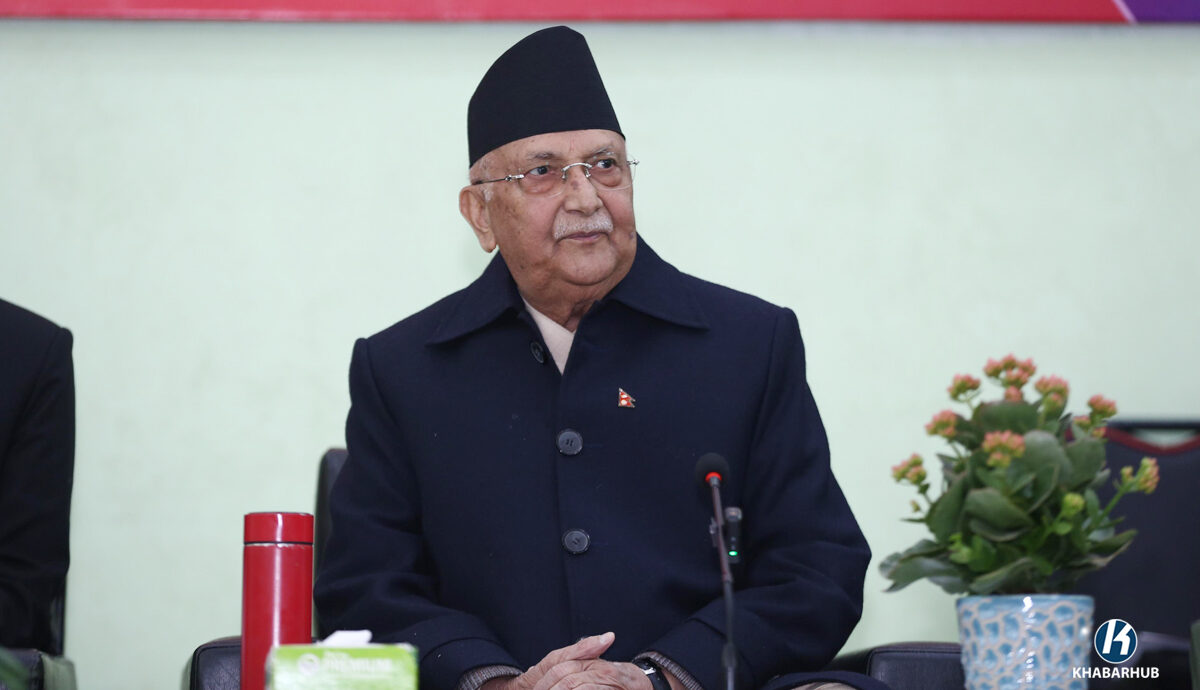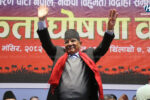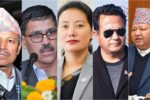KATHMANDU: Prime Minister and CPN-UML Chair KP Sharma Oli presented a 47-page political report at the eighth central committee meeting of the party held in Chyasal on Sunday.
The report addresses the current political situation and outlines future strategies.
While Oli adopted a conciliatory tone toward coalition partner Nepali Congress, he was highly critical of the Maoist Center and monarchist forces.
In his report, Oli accused monarchists of attempting to create chaos and undermine the country’s democratic achievements.
“Recently, former royalist groups and individuals have become active in spreading anarchy. They are trying to paint a distorted picture of Nepal’s painful history under 240 years of Shah monarchy, while discrediting the nascent republican system established just 16 years ago,” Oli said.
Oli also alleged that Maoist Chair Pushpa Kamal Dahal, also known as Prachanda, betrayed coalition agreements, particularly during the presidential election.
“We proposed Prachanda as prime minister to honor the people’s mandate and create a new alliance. However, his actions, including backroom dealings and a lack of political stability, made it impossible for us to remain in the government,” Oli stated.
He added that the Maoist leadership fostered mistrust and used corruption investigations for partisan gains.
“Instead of prioritizing national interest, the Maoists engaged in deceit, sidelining UML from key decisions while secretly negotiating with other parties for power,” Oli said.
Regarding monarchists, Oli expressed concern over their increasing activities and claimed that opposition forces are aligning with them.
“Regressive forces are openly challenging the constitution and campaigning against democratic republicanism. Some are even setting dates for the return of monarchy,” he remarked.
On the other hand, Oli described Nepali Congress as a key player in Nepal’s democratic journey.
“Despite being competitors, UML and Congress have been pivotal in major democratic movements, from overthrowing the Rana regime to the 1990 and 2006 revolutions,” he said.
Oli also defended the UML-Congress seven-point agreement signed in July 2024, claiming it was a necessary step for political stability.
He dismissed accusations from Maoists and monarchists that the agreement undermined federalism and inclusion.
The report concluded by emphasizing the need for all democratic forces to unite to safeguard Nepal’s republican achievements and counter misinformation being spread by opposition groups.









Comment